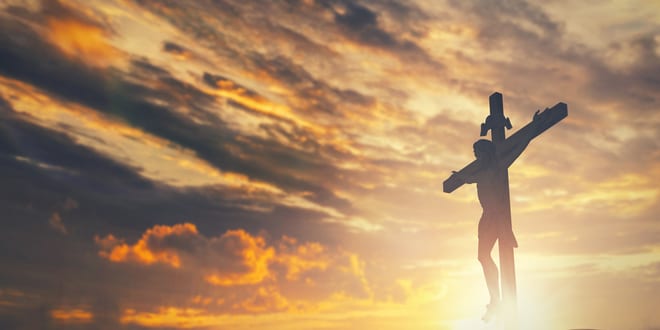While Arab Christians claim to be the first followers of Jesus, Palestinian Christians are espousing a new theology based on Jesus as a secular Social Justice Warrior fighting the “Occupation:. Of course, this requires redacting the Bible, removing any reference to God’s promise to Abraham, Isaac, and Jacob.
Abeer Khshiboon, an Israeli Arab Christian born in Haifa, is a doctoral candidate in theology at the Humboldt University of Berlin. Ironically, she has a Master’s in Jewish theology from the University of Potsdam. Her article “Reclaiming History and Memory: Bridging the Jesus Event and the Nakba” was published last month in Political Theology.
Her article is interesting on an intellectual level, though it contradicts the traditional understanding of Jesus as a historical and religious character. It portrays Jesus as a Galilean Jewish revolutionary figure, aligning him with the marginalized and oppressed groups rather than the religious elite. Jesus is presented as challenging the “Jerusalem faction” and their “system of sin” that excluded and dehumanized many people deemed impure or sinners. The author argues that Jesus’s movement was about redefining sin, restoring kinship among the people, and integrating the internally exiled into a “post-Jerusalem” kingdom of God. Jesus is depicted as a leader of a grassroots movement, more aligned with Galilean traditions of resistance than with the Judean religious establishment. The article suggests that the typical Christian understanding of Jesus obscures his ministry’s political and social dimensions.
The temple-state in Jerusalem is portrayed as oppressive towards the common people, especially Galileans, imposing heavy burdens through taxation and religious regulations. Regarding modern Israel, the article is critical of Zionism, comparing it to previous imperial powers that have controlled Palestine. It suggests that Zionism, like earlier empires, disconnects Palestinians from their biblical heritage and homeland.
The author argues for understanding Palestinian identity as having continuity with ancient Israelite heritage, challenging the exclusive claim of modern Israel to this legacy.
Overall, the article presents a revisionist view of Jesus and ancient Israel that emphasizes themes of social justice, resistance to oppression, and the continuity of Palestinian identity with the land’s ancient history. It is critical of both ancient power structures centered in Jerusalem and the modern state of Israel, viewing both as disconnected from the experiences and traditions of the people of the land.
The article deemphasizes, actually negating, Jesus’ role as the founder of Christianity. While the author speaks about “the Kingdom of God” as a social construct, she does not mention Jesus’ relationship with the Divine as the son of God, a central theme in Christian theology.
Her paper praises the antisemitic “Liberation Theology” of today’s Palestinian Christians. This twist on classical Christian belief attempts to base Palestinian resistance to Israel as well as Palestinian national aspirations in the Christian Gospel. It includes an intense valorization of Palestinian ethnic and cultural identity as guarantors of a truer grasp of the gospel because they are the true inhabitants of the land of Jesus and the Bible. Liberation Theology defines Jesus as a Palestinian living under Israeli occupation. It defines Christianity as a human rights movement.
This theology has difficulty and contends the validity of the Torah, which they consider “Zionist text,” and the books of Joshua, Judges, 1 and 2 Samuel, and 1 and 2 Kings—all of which confirm God gave the land of Israel to the Jewish people. Liberty Theologians believe that Christians no longer need to acknowledge the Old Testament prophecies concerning the Jewish people’s return to the land. Instead, Liberation Theologians begin their exegesis with 1 Kings 21, portraying King Ahab as the modern State of Israel, murdering Naboth and stealing the land of the Palestinians, who are portrayed as Naboth. Liberation Theology believes that one day, God will punish the Jews and return the land to its rightful owners: the Palestinians.
This reinterpretation of the Bible and of Jesus has generated tensions between Israeli Arab Christians who ascribe to Liberation Theology and Arab Christians who self-identify as Palestinian. Indeed, Shelley Neese, vice president of The Jerusalem Connection Report, compared Liberation Theology to Replacement Theology and Supersessionism.
“Replacement Theology teaches that the Church superseded Jews as the benefactor of God’s covenants. PLT goes one step further, saying that the Jews never had a place of favor in the first place, Neese said. “In some cases, they erase Israel from the Bible altogether. Many Palestinian Churches that teach PLT have changed the Psalms by removing every reference to ‘Israel’ and Zion.’”
“It is a dangerous propaganda tool cleverly wielded… to undermine Israel’s right to the land. All the while, this anti-Semitic politically-driven theology void of the Gospel hides behind a façade of peace, justice, and love,” Neese concluded.
This theology leads to some bizarre conclusions. In an interview about her novel, The Stranger, Khshiboon states several contradictory and confusing perceptions.
“…the words “Palestine” and “Israel” refer to an idea, rather than to countries or a geographical location,” she said. “I’m not a linguistics expert, but I think that when we say Israel, we mean the government, the powers, the occupation, and the colonial system. The word Israel comes with a military package: checkpoints, military, army, Shin Bet, Mossad. On the other hand, when we say Palestine, we mean a country that is free from militarism, and this does not exist today. Perhaps it never existed, as Palestine has been suffering from successive occupations for more than 2000 years, and it has never been free. However, the Israeli occupation is undoubtedly the worst in history, because it is the only occupation that has carried out systematic ethnic cleansing in Palestine. Personally, I think it’s also worse because Zionism is derived (based on incorrect interpretations) from Judaism, which is the Palestinian heritage of religion and culture, but that’s another issue. Many Jews around the world agree with this and are ashamed of the Zionist practices done in the name of this fundamentally peaceful religion.”




